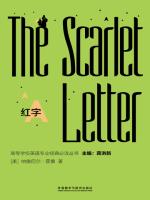love and religion
Hester loved Dimmesdale, but was it really all the time? Is that what love is? Isn't that a vicissitudes of affection? Because their hearts were bound together by those sufferings, they were able to meet and talk naturally and inwardly but was that love? If it was love, why did Dimmesdale ask the hypocritical question in the first place? Was Hester really standing on the torture platform out of love to protect the priest, or was he just helpless to let things go on since he was already standing there? Was it really out of love that the priest had to torture and torment himself later on, and not because he was disgusted by his own evasiveness and hypocrisy? Wasn't Hester's strength to stay alive and help everyone a result of the resilience of life itself? How much does that have to do with love? As for their conversation in the woods, so natural, so passionate, was it about love or the desire for freedom?
If we talk about love, I think the child is the flower of love, she is wild, she is sensitive, she is loved by her mother, she loves her mother, and she is good at resistance and self-protection, I think she is the protagonist of the Scarlet Letter, the A word is just a human bondage but also a sign of distinction from others. I think everything about that child's character is what Hawthorne aspires to be. The A-word on Hester's chest and the priest's hand on his chest both symbolise bondage. I think Hawthorne genuinely and sincerely wanted to break through this bondage, he struggled inside and wanted to be free, but the times did not allow it, the world did not allow it, and his helplessness is shown at the end, when the priest speaks out the pent-up frustration in his heart and he frees his mind, but he dies, he was never able to live freely with Hester. Hester took Pearl and left, so was she free? She came back and to her death even had that A engraved on her tombstone and it was a distance between it and the priest's grave, a mockery of Hawthorne's own, his helplessness against the times and fate. And that child, the embodiment of freedom, Pearl doesn't have much of an ending; we guess from just a few words that she married, got rich and gave birth, but does that uncertain tone reflect the author's uncertainty? Does it show the author's hesitation? Does it symbolise the author's realisation of how little hope there is of escaping that time? And does the fact that Pearl's happiness is far away in a world she doesn't know symbolise the author's desire to escape?



 京公网安备 11010802032529号
京公网安备 11010802032529号